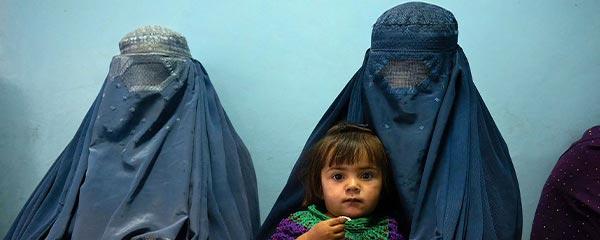Story Highlights
- Nearly four in 10 believe Afghans will be worse off
- About half believe Taliban presence will increase
- Majority confident in their own military
WASHINGTON, D.C. -- With the U.S. and NATO combat missions ending in 2014, many Afghans remain pessimistic about what the future holds after the troops are gone. Nearly four in 10 believe they will be worse off with the withdrawal of the majority of U.S. and NATO forces, while fewer expect the situation to be the same and an even smaller percentage think they will be better off.

Security, and the threat from the Taliban in particular, is a big factor in Afghans' trepidation. The year 2014 ended up being one of the deadliest the United Nations has on record for civilians, with a surge in Taliban attacks. Although Afghans are somewhat more positive now than they were in 2013, they largely expect this situation to get worse. Nearly half of Afghans (46%) believe the presence of the Taliban will increase when international forces depart, while half as many (23%) expect it to decrease.

The Taliban ramped up attacks across Afghanistan in 2014, but fears of the group's resurgence are strongest in the West, where 67% of Afghans believe their presence will increase. Half of Afghans living in the Central region, which includes the country's capital, Kabul, also believe this. These concerns are more muted in the South and East, but residents in those regions still are more likely to say the Taliban's presence will increase rather than decrease.

Afghans may be skeptical about their future after international troops leave, but they remain highly confident in their own military, which assumed full responsibility for the country's security on Jan. 1, 2015. The upward trend in Afghans' confidence in their military ended in 2014, but at 71%, the proportion who currently have faith in their military is still much higher than it was even a few years ago.

Bottom Line
The Taliban -- which has declared victory over the U.S. and its allies -- clearly remains a real threat to many Afghans, and one that Afghans expect to get worse, now that the bulk of the international forces are gone. Although the U.S. will leave behind more than 10,000 troops for support and counter-terrorism efforts, many Afghans likely agree with President Ashraf Ghani's call last week for the U.S. to "re-examine" its timetable for removing these forces by the end of 2016. Afghans, like Ghani, see that more work remains to be done in their country and that the conflict at home will not end, although the war officially has.
Â鶹´«Ã½AV analysts will be discussing these and other findings from Â鶹´«Ã½AV's World Poll in Afghanistan at a research briefing on media use with The Broadcasting Board of Governors on Jan. 15 in Washington, D.C. This event is free, but registration is required: .
Survey Methods
Results are based on face-to-face interviews with 1,000 adults, aged 15 and older, conducted Aug. 18-Sept. 12, 2014, in Afghanistan. For results based on the total sample of national adults, the margin of sampling error is ±3.6 percentage points at the 95% confidence level. All reported margins of sampling error include computed design effects for weighting.
For more complete methodology and specific survey dates, please review .
Learn more about how the works.

